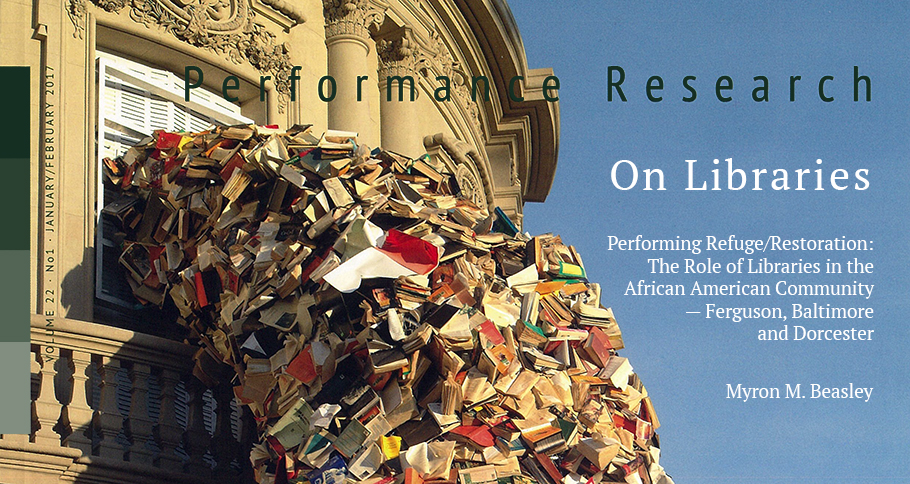According to bell hooks, the public library is one of the ‘most subversive institutions in the United States’. Considered the cornerstone of the democracy, the public library in the United States is charged with educating citizens of the democratic process. At the founding of the American Library Association, as with that of the United States of America, the concept of democracy was limited to the white colonists; literacy for the enslaved was considered an act of sedition. The library, particularly the public library, for African Americans thus inhabits a precarious site: one of performative and transformative possibilities for education and the participation in the democratic process—fraught with exclusionary politics and ensconced in a history of violence and death. This essay plays with the concept of ‘subversion’, as noted by hooks, to suggest libraries as contested sites of restoration and ones that produce, what Ngūgī wa Thiong’o considers, enactments of power. The public libraries during the racial protests in Ferguson, Missouri and Baltimore, Maryland are highlighted to locate libraries as theatres of restoration and refuge and furthermore extends the performative modes of restorative enactments by considering The Dorchester Project by community-based artist Theaster Gates. The place of African Americans in library history, or African American library history, particularly in relation to the public library system in the United States, is significant, and this essay provides both a historical contextualization and theoretical frame that recalls the library as a contested site and a space of endless possibilities.
